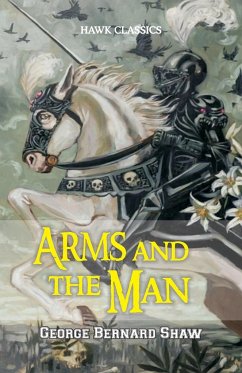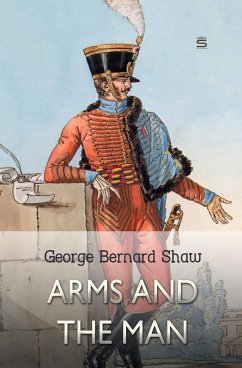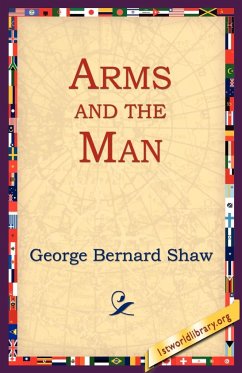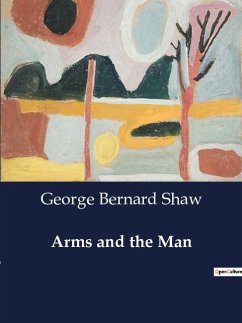
Arms and the Man
Versandkostenfrei!
Versandfertig in 1-2 Wochen
14,99 €
inkl. MwSt.

PAYBACK Punkte
7 °P sammeln!
First produced on the London stage in 1894, 'Arms and the Man' was one of George Bernard Shaw's most performed and studied plays and his first commercial success. It is a classic example of Shaw's comedic wit about idealized love versus true love. Set during the Serbo-Bulgarian war, it is a biting social commentary on the conflict that occurs in both love and war. Its heroine, Raina Petkoff, is a young Bulgarian woman engaged to Sergius Saranoff, one of the heroes of that war, whom she idolizes. On the night after the Battle of Slivnitsa, a Swiss mercenary soldier in the Serbian army, Captain ...
First produced on the London stage in 1894, 'Arms and the Man' was one of George Bernard Shaw's most performed and studied plays and his first commercial success. It is a classic example of Shaw's comedic wit about idealized love versus true love. Set during the Serbo-Bulgarian war, it is a biting social commentary on the conflict that occurs in both love and war. Its heroine, Raina Petkoff, is a young Bulgarian woman engaged to Sergius Saranoff, one of the heroes of that war, whom she idolizes. On the night after the Battle of Slivnitsa, a Swiss mercenary soldier in the Serbian army, Captain Bluntschli, climbs in through her bedroom balcony window and threatens to shoot Raina if she gives the alarm. When Russian and Bulgarian troops burst in to search the house for him, Raina hides him so that he won't be killed. He asks her to remember that "nine soldiers out of ten are born fools."













